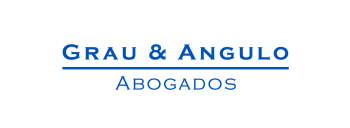In May 2012 Carolina Herrera Limited, Puig France SAS and Antonio Puig, SA – all part of Spanish perfume and fashion group PUIG – filed suit before the Spanish Community Trademark Court against Equivalenza Retail, SL and Cataleg de Serveis Integrals, SL for trademark infringement and unfair competition.
The defendants owned a chain of stores, Equivalenza, selling perfumes that were allegedly 'smell-alikes' of well-known perfumes. For the offering, promotion and advertisement of such products, Equivalenza made use directly, through its shops and on the Internet, of the registered trademarks of the well-known perfumes allegedly being imitated, mainly through comparison lists – brochures linking the numerical references of the smell-alike perfumes to the trademarks of the original perfumes. Among other well-known perfume trademarks, Equivalenza made use of several trademarks belonging to the Puig Group, such as CAROLINA HERRERA, 212, PACO RABANNE, BLACK XS, 1 MILLION, LADY MILLION and NINA RICCI.
Carolina Herrera Limited and Puig France SAS, the owners of the well-known trademarks, claimed for trademark infringement, while Antonio Puig, SA, distributor of the perfumes in Spain, claimed for unfair competition.
In a judgment of January 28 2014 the Spanish Community Trademark Court No 1 upheld the plaintiffs' claims for trademark infringement and unfair competition.
Trademark infringement
The court held that such use of the plaintiffs' trademarks, which were proven to be well known in different EU member states, constituted an infringement of the rights holders' exclusive rights conferred by Article 9.1(c) of the EU Community Trademark Regulation (207/2009) and its homologous Article 34.2(c) of the Spanish Trademarks Act (17/2001).
In this context, the court rejected Equivalenza's main defence and held that its use of the claimants' trademarks could not rely on any of the ius prohibendi limitations (the right to prohibit others from using property – Article 12 of the Community Trademark Regulation and Article 37 of the Trademarks Act) – notably, on the use of trademarks for purely descriptive purposes. The court based this interpretation on the landmark June 18 2009 judgment of the European Court of Justice (ECJ) in L'Oréal-Bellure (C-487/07), which resolved a similar case on the sale of perfume imitations (some without imitating the perfumes' packaging and bottles, as in this case) by using the comparison lists supplied to retailers. The Community Trademark Court reasoned that such use of the plaintiffs' trademarks was neither necessary to indicate the intended purpose of Equivalenza's perfumes nor a descriptive indication of the product's characteristics, since what is regarded as descriptive is the scent or olfactory family (eg, floral, fruity). It added that, in opposition to the demands of the ius prohibendi limitations, such use did not accord with honest practices, since it gave rise to an association with the well-known trademarks that took unfair advantage of their prestige and recognition in the market.
Unfair competition
Regarding the unfair competition perspective, the Community Trademark Court confirmed Antonio Puig, SA's standing to sue as the company offering, distributing and selling in Spain the perfumes owned by Carolina Herrera Limited and Puig France SAS. This condition was sufficiently proven by the commercial invoices filed in the proceedings, so it was not necessary to provide a written distribution contract.
Regarding the merits, the Community Trademark Court held that, in line with its reasoning on the trademark infringement analysis and the relevant case law (particularly L'Oréal-Bellure and some Spanish decisions on similar matters, but from an unfair competition perspective), Equivalenza's use of the original well-known trademarks was unlawful because it constituted unfair comparative advertising. The judge opined that Equivalenza presented its smell-alike perfumes as imitations or replicas of the perfumes bearing the original trademarks and took unfair advantage of their reputation, infringing Article 10 of the Unfair Competition Act (3/1991), in accordance with the EU Misleading and Comparative Advertising Directive (2006/114/EC), as well as Articles 12 and 18 of the act, which prohibit the exploitation of a third party's reputation and any advertisement regarded as illegal under advertising law, respectively.
Order
As a result, the court sentenced Equivalenza for both trademark infringement and unfair competition, ordering the defendants to:
- cease and refrain in future from offering, advertising and promoting their smell-alike perfumes using the plaintiffs' trademarks;
- remove and destroy all promotional and advertising materials where such trademarks were reproduced; and
- refrain from supplying such materials to their shops.
The court stressed that the defendants were liable for offering and advertising, directly and through their shops, perfumes that made use of the plaintiffs' trademarks. This was irrespective of the fact, alleged by the defendants, that this business model was inherited from a previous partner, and that it had changed since – apart from evidence that the unlawful behaviour had continued – Equivalenza's obligation as a company acting on the market was to verify the lawfulness of its activities at all times.
The court also ordered Equivalenza to pay damages to the plaintiffs and to publish the verdict, in view of the well-known character of the trademarks and their prolonged infringement through unlawful advertisement in multiple stores and online.
This relevant decision is the first in Spain since the ECJ's L'Oréal-Bellure judgment to address the use of another party's trademarks to advertise smell-alike perfumes. Not only was it in line with the ECJ decision – protecting the rights holders of well-known trademarks against use that, far from being descriptive, takes unfair advantage of their reputation – but it also offers a second level of protection through unfair competition law, safeguarding the interests of businesses and ensuring compliance with advertising regulations.
For further information on this topic please contact Carlota Viola at Grau & Angulo by telephone (+34 93 202 34 56), fax (+34 93 240 53 83) or email ([email protected]). The Grau & Angulo website can be accessed at www.gba-ip.com.



